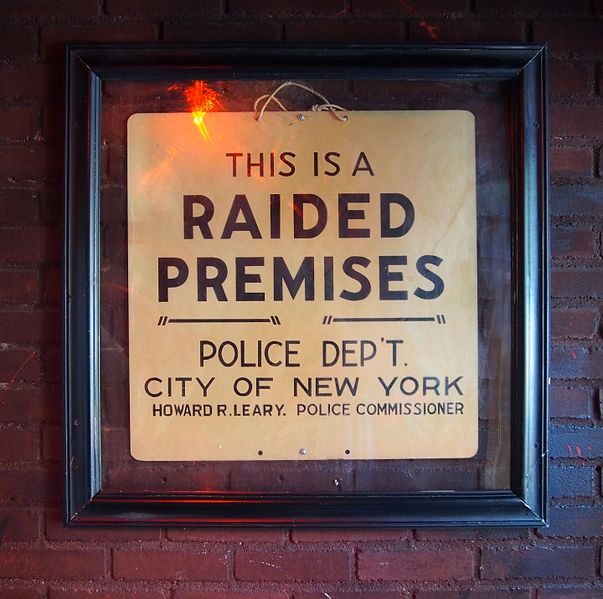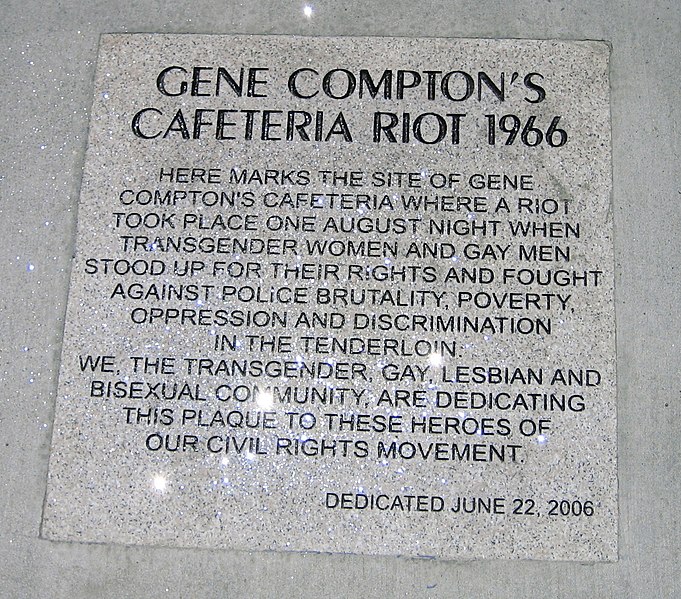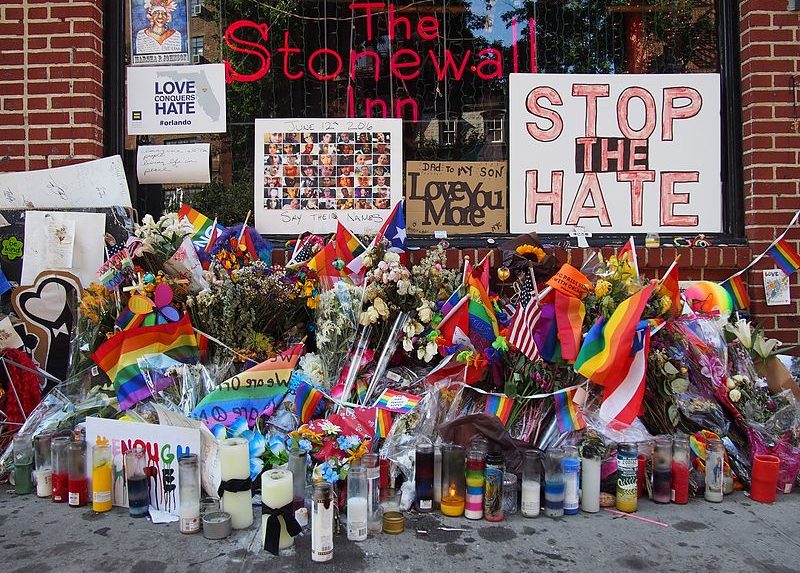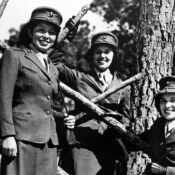This series by American studies professor Ben Railton explores the connections between America’s past and present.
As we celebrate Pride Month, many commemorations have focused on the June 1969 Stonewall uprising, not just for this month of celebration but for the modern LGBTQ rights movement as a whole. Indeed, June was chosen as the month for Pride in tribute to both that June 28, 1969, police raid on Greenwich Village’s Stonewall Inn and (especially) the multiple days of subsequent, collective resistance from the city’s LGTBQ community and its allies. While the raid itself was frustratingly typical for the time period, the uprising was anything but, and Stonewall drew national attention to the LGBTQ community in ways that permanently changed the conversation.

Yet while Stonewall did certainly represent a turning point, it was not in any way an origin point. In fact, the 1960s LGBTQ rights movement was already well underway by 1969. A trio of earlier activist moments from the decade helps us understand the multiple layers to such social movements — and extend their legacies into our own moment.
First, it’s important to note that the LGBTQ movement did not originate in the 1960s, but instead built on prior communities and organizations. In 1924, for example, German-American immigrant and postal worker Henry Gerber founded the Society for Human Rights, a non-profit organization based out of Chicago and dedicated to advancing LGBTQ equality. That organization’s efforts and challenges, like its very existence and the stories of its inspiring members, are all part of the history of LGBTQ activism and community.
As with so many American social movements, those longstanding histories were greatly amplified in the 1960s. One of the earliest LGBTQ rights protests in the 1960s took place outside Philadelphia’s Independence Hall on July 4th, 1965. Organized by a courageous group of activists called the Gay Pioneers, this was the first of what would become known as the Annual Reminder Marches and was very purposefully held in that historically significant location on that nationally symbolic occasion. As one of its organizers, Reverend Robert Wood, put it, “We were picketing for freedom and equal rights, and the Liberty Bell was a great symbol.” Another local LGBTQ rights activist, Cuban-American immigrant Ada Bello, expressed that critically patriotic perspective directly: “The marches were to convey to everybody that we were just as entitled as any citizen to have our rights respected.” The Annual Reminder Marches have continued to this day, and a collective embrace of them during Pride would make a perfect complement to our commemorations of Stonewall.
The Annual Reminder protest, 1968 (Uploaded to YouTube by WHYY)
In the fall of 1965, a few months after that first Annual Reminder March, the San Francisco priest and activist Adrian Ravarour (with the help of young activists Joel Williams and Billy Garrison) founded Vanguard, a community organization inspired by the civil rights movement and dedicated to advocacy and activism for LGBTQ rights. The Reverend Larry Mamiya, a civil rights movement leader and an ally of the organization through its relationship with San Francisco’s radical Glide Memorial Methodist Church, describes Vanguard in direct relationship to the decade’s other social and protests movements: “At that time, I did not know about the background of Adrian’s founding philosophy, which included Mohandas Gandhi and the Rev. Dr. Martin Luther King, Jr. among others . . . In retrospect, Vanguard can be seen as the spearhead of a nonviolent social change movement of young gay people, the first in the nation dedicated to bringing about social justice and equal rights.”
A year later, Vanguard put those ideals into action, helping to organize and support one of the decade’s most influential LGBTQ protests, the August 1966 Compton’s Cafeteria Riot. In this uprising, which directly foreshadowed the events at Stonewall three years later but remains far less well known, a group of transgender activists, drag queens, and their allies fought back against the consistent discrimination and police harassment and brutality they had faced for many years in San Francisco’s Tenderloin district. In her book Transgender History (2008), scholar Susan Stryker calls the riot “the first known incident of collective militant queer resistance to police harassment in U.S. history,” and notes that the protests, coupled with a number of ongoing Vanguard community service efforts in the neighborhood and beyond, pushed the city to “begin addressing them as citizens rather than as a problem to be removed.”

As is the case with the civil rights movement, a too-narrow focus on individual moments and leaders makes it much more difficult to remember the multi-layered, multi-faceted origins of the LGBTQ rights movement in America. If we only remember Stonewall, it might reinforce narratives of LGBTQ Americans as predominantly victims of oppression and brutality. Those histories are part of the story of the movement’s origin points to be sure; but so too are the groundbreaking challenges faced by the Society of Human Rights, the communal and critical patriotic efforts embodied by the Reminder Marches and Vanguard, and the proactive uprising at Compton’s Cafeteria. For this year’s Pride Month, let’s try to remember them all.
Featured image: The Stonewall Inn in 2016, two weeks after the Pulse nightclub shooting in Orlando (Rhododendrites, Wikimedia Commons via the Creative Commons Attribution-Share Alike 4.0 International license)
Become a Saturday Evening Post member and enjoy unlimited access. Subscribe now



